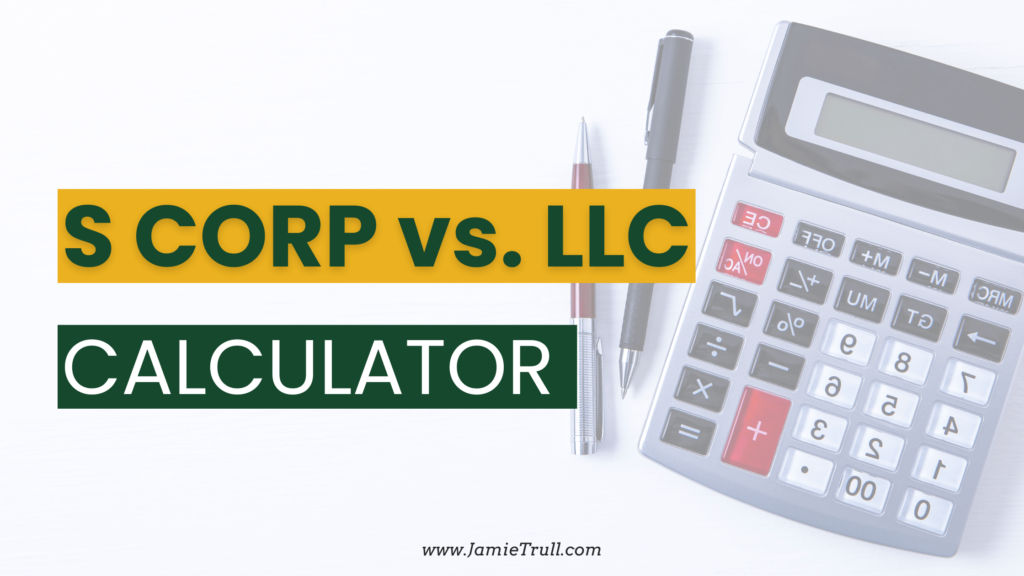
As a small business owner, you may not know about the best business banking accounts available online (for free!)
And it may be tempting to use your personal bank account for your business transactions because it seems easier to get started.
However, maintaining a separate business checking account offers numerous business tools and advantages.
Long story short, a business banking account is essential for the financial health and legitimacy of your business.
As part of my collaboration with Relay Bank and Novo, I have explored their products, and here’s what I found…
Compelling reasons why having a dedicated bank checking account is crucial

Legal and Liability Protection
Separation of Personal and Business Finances: By having a distinct business checking and savings account, you establish a clear separation between your personal and business finances.
This separation is crucial for established businesses for legal and liability purposes, especially if your business is structured as a limited liability company (LLC) or corporation.
It helps maintain the integrity of your business accounts personal assets and protects them from potential business liabilities or legal disputes.
Enhanced Professionalism:
Credibility and Trust: Using a business checking account adds credibility and professionalism to your business.
It demonstrates to customers, clients, and partners that you are serious about your business and that you operate with transparency.
Clear Financial Records: Having separate bank statements and financial records for your business makes it easier to track and manage your business expenses, income, and tax obligations.
This clarity facilitates accurate bookkeeping, simplifies tax filing, and ensures compliance with financial regulations.
Looking for the best bank to replace Azlo? Check this out ⬇️.

Financial Management and Efficiency:
Streamlined Accounting: A dedicated business checking account simplifies your accounting processes. You can easily reconcile transactions, monitor cash flow, and generate financial reports for your business.
Efficient Expense Tracking: With a separate account, it becomes easier to track and categorize business expenses, making it simpler to identify deductible expenses for tax purposes.
Improved Financial Analysis: Having clear visibility into your small business owner’s financial standing allows for better financial analysis, budgeting, and decision-making.
Access to Business Banking Services and Features:
Tailored Business Services: Business checking accounts often come with specialized services designed to meet the unique needs of businesses, such as merchant services, business loans, and payroll management solutions.
Business-Specific Tools: Many business banking platforms provide additional features like invoicing capabilities, integration with accounting software, and expense tracking tools, empowering you to streamline your financial operations.
Compliance with Tax and Regulatory Requirements:
Tax Reporting: Maintaining a separate business account ensures accurate and efficient tax reporting. It helps you differentiate business income from personal income and simplifies the process of estimating and paying quarterly taxes.
Audits and Legal Compliance: Separating your personal and business finances through a dedicated business account provides a clear audit trail, ensuring compliance with tax regulations and making any financial audits smoother and more transparent.
By opening a dedicated business checking account, you lay a solid foundation for the financial management and growth of your business.
It helps you maintain legal compliance, build credibility, streamline financial operations, and ensure accurate record-keeping for tax and accounting purposes.
Consult with your preferred banking institution to explore the options available for business checking accounts that best suit your specific needs.
Remember, always consult with a financial or legal professional to understand the specific requirements and regulations relevant to your business structure and jurisdiction.
Big Banks and Credit Union business checking accounts vs newer online banking platforms

When considering local credit unions and big-name banks for your small business banking needs, it’s important to weigh the pros and cons of each option.
Here’s a list that includes both positive and negative aspects:
Big-Name Banks:
Pros:
- Extensive branch and ATM networks, provide convenient access to in-person banking services.
- Offer a wide range of business banking products and services, including specialized business support.
- Advanced digital banking platforms with robust features and functionalities.
- Greater financial stability and access to resources compared to smaller institutions.
Cons:
- Tend to have higher fees compared to local credit unions.
- Can be less personalized and have a more bureaucratic approach to customer service.
- Might have stricter lending criteria, making it more challenging for small businesses to secure loans.
- Interest rates on savings accounts and loans may not be as competitive as those offered by credit unions.

Local Credit Unions:
Pros:
- Often offer personalized service and a community-focused approach.
- May provide competitive interest rates on loans and higher interest rates on savings accounts.
- Tend to have lower fees compared to big-name banks.
- Can have a more flexible lending policy and be more willing to work with small businesses.
Cons:
- Limited branch and ATM network, which can be a disadvantage if you require widespread accessibility.
- May have fewer advanced digital banking features compared to big-name banks.
- Might not offer specialized business banking services or comprehensive business support.
- Could have limited resources and financial products compared to larger institutions.

It’s important to thoroughly research and evaluate the specific offerings, fees, customer service quality, and local reputation of both local credit unions and big-name banks in your area.
Consider your business’s unique needs, preferences, and growth plans when making a decision.
Best Free Small Banking Solutions
If you don’t often need ATM access, you may opt to go for a more cost-effective alternative for business banking.
These business banking platforms are completely free and offer great user interfaces and other features.
They are also FDIC insured by a partner member bank.
When choosing a top online banking platform for your small business, consider the following options:

Relay:
- Ideal for small to medium-sized businesses of any entity type seeking free banking with extensive features.
- Convenient for businesses with multiple entities requiring multiple Relay accounts.
- Offers up to 20 separate bank accounts for cash segregation and bill payments.
- Provides various levels of access to advisors/accountants.
- Supports the implementation of the Profit First methodology for bank balance accounting.
- Enables businesses to add team members and create virtual or physical debit cards with specific limits.
- Allows cash withdrawals or deposits at select AllPoint+ ATMs nationwide.
- Does not include built-in invoicing.
- Facilitates recurring transfers between Relay accounts or external accounts.
- Integrates with popular accounting software or financial tools for streamlined financial management.
- Provides robust security measures to safeguard sensitive financial information.
- User-friendly mobile and web interfaces for convenient account management.
- Responsive customer support to address any questions or issues.
Check out Jamie’s partner offers from Relay!
Watch the video below to learn more about Relay.

Novo:
- Suitable for businesses that need free invoicing capabilities within their banking solution.
- Recommended for businesses with one entity and one account.
- Designed for solopreneurs or small businesses with a few employees (any entity type).
- Allows funds to be separated into reserves (up to 10 envelopes) within the main account.
- Supports a modified Profit First or similar savings method.
- Automates savings into designated buckets (reserve accounts).
- Permits ATM withdrawals of up to $1,000 with fee refunds by Novo (no cash deposits).
- Intuitive and user-friendly platform that simplifies financial management for non-financial professionals.
- Provides detailed transaction categorization and reporting for better expense tracking and budgeting.
- Collaborates with third-party platforms, such as payment processors or expense management tools, for enhanced functionality.
- Easy and quick account setup process without extensive paperwork or delays.
Check out Jamie’s partner off for Novo banking!
Watch the video below to learn more about Novo
Frequently Asked Questions About Business Checking Accounts

Do I actually need a business bank account?
Yes. From the perspective of the bank, it is actually against U.S. banking regulations to have business transactions running through a personal-type account.
This means that your bank account could possibly be frozen or shut down for a period of time if it was suspected that business was being conducted through a personal account. It’s likely not a risk you want to take.
Additionally, depending on your structure, it may be required to have a business bank account in order to keep your legal protections. For example, an LLC and S-corp needs to keep business and personal separate in order to maintain legal separation.
When it comes to running a business, having a dedicated business checking account is an essential part of managing your cash flow on a day-to-day basis.

First, it allows you to keep track of transactional data more easily.
A bank account that specifically belongs to the business simplifies bookkeeping by allowing you to easily categorize and set aside funds for taxes, payroll, operations expenses, investments, etc.
It also helps prevent “losing” transactions by mixing up payments made from personal vs. business funds.
Additionally, a designated business checking account gives potential investors greater confidence in your operations since they can clearly see the financial structure of the company through easy access to detailed records associated with the account.
Furthermore, having a distinct and separate account used for business purposes allows easier tracking when applying for loans or setting up financing contracts because lenders prefer such structured separation of assets (even if they are held under one title).
In addition to this convenience factor, when dealing with banks or creditors outside of your own entity, there are very practical advantages that come into play concerning added safety measures usually provided when operating under two different accounts (for example FDIC protection caps being doubled).
Do you need a separate bank account for a small business? Can I use my personal bank account for a side hustle?

Can you? Yes. Should you? No.
You might be able to use your personal bank account for a business. But it is important to consider the implications of this decision.
If you are running a sole proprietorship – meaning your business and yourself are essentially inextricably linked – then it may make sense to simply continue using your existing bank account.
This eliminates the need to deal with extra paperwork such as opening a separate account for the business or more complicated issues surrounding taxes and liability protection.
However, if you plan on hiring employees or entering into contracts in the future, keeping your funds completely separate between personal and professional is wise.
Before using your personal checking account for business transactions or accepting credit card payments, it’s crucial to verify your bank’s policies and guidelines on the matter.
Simply contact your bank for more information and ensure a smooth and stress-free banking experience.
Your bank will want to know your business type: see this article to calculate if you should go S-Corp vs LLC:

Is it better to open a business bank account?
Opening a business checking account is an important step to take when launching your business.
Having a dedicated and separate bank account for your business can help you keep track of all of your income and expenses, protect yourself from financial liabilities, and show potential lenders that you are serious about running a profitable venture.
Furthermore, having a business checking account gives you access to additional services like interest-bearing accounts and merchant services such as payment processing.
When it comes time to open a business account, make sure you choose the right provider.
One thing to look for is whether or not the institution is backed by FDIC insurance—this provides assurance that deposits up to specified limits are protected in the event the bank fails financially.
Many banks will advertise themselves as ‘member FDIC’ institutions which means they have met all of the requirements necessary for this level of protection from federal authorities.
It’s also important to review any fees associated with opening an account as well as any minimum balance or transaction thresholds required for maintaining them; these can vary widely depending on where you decide to open your accounts so it pays off in spades doing some research beforehand!
In summary, having a dedicated business checking account should be an essential part of managing your company’s finances – ensuring security through member FDIC protection while making sure any charges associated with its use fit within budgetary constraints.
TLDR: What you need to know about a business checking account

High-level Summary of business checking: It’s important to have a business debit card and a separate business checking account for the financial health and legitimacy of your business.
Detailed Summary of business bank accounts:
- Separation of personal and business finances is necessary for legal liability protection.
- Separate personal and business checking accounts enhance professionalism through credibility, trust, and clear financial records.
- Streamline your accounting, make expense tracking more efficient, and improve your financial analysis with business accounts.
- A business checking account gives you access to business-specific banking services and features and manages cash flow.
- Business checking accounts help you maintain compliance with tax and regulatory requirements through accurate reporting and audits.
- We compared big-name banks and local credit unions, weighing the pros and cons.
- Intro to banking solutions: Relay and Novo, their features, and target users.
- Last thoughts: Make sure to consider factors such as monthly service fee charges, transaction fees, minimum opening deposit, transaction limits, and integration capabilities when choosing a banking platform.
- Learn more about the banking platforms we recommend here.